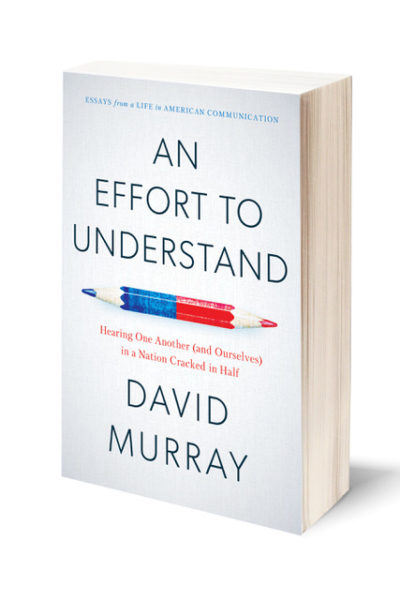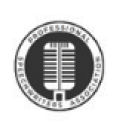Want to become a better communicator? Make an effort to understand
For years communication pundits have written about our need as individuals to talk less and listen more.
If you want to become a better communicator, check out “An Effort to Understand,” a new book by David Murray.
He’s executive director of the Professional Speechwriters Association, editor and publisher of Vital Speeches of the Day and Vital Speeches International, an award-winning journalist and bestselling author.
 “An Effort to Understand: Hearing One Another (and Ourselves) in a Nation Cracked in Half” by David Murray does what good books do: It compels you to think deeply about a subject – communication – and consider viewpoints you may not have considered before.
“An Effort to Understand: Hearing One Another (and Ourselves) in a Nation Cracked in Half” by David Murray does what good books do: It compels you to think deeply about a subject – communication – and consider viewpoints you may not have considered before.
For example:
- There is no such thing as strategic communication.
- It’s your skeptics who make you make your message stronger.
- It’s the things you never do that say the most.
- There’s a difference between civility and civil communication.
- The right speech is an action.
Not surprisingly, this book is dedicated “to the communicators” – and who among us isn’t a communicator, whether that’s our profession as speechwriters, executive communicators, corporate communicators or internal communicators, or whether communication is what we are called to do every day in our work as CEOs or politicians, civil servants or community volunteers, managers or line workers, entrepreneurs or employees, pastors or parents.
Murray’s ask seems simple enough: We have to make an effort to understand one another (critical now as the world seeks new ways to repair our polarized society).
But figuring out the how is what’s tough.
Murray breaks it down for us with candid stories and lessons from his life, shared with healthy splashes of humor, edginess, vulnerability, humility and sometimes even apology.
For anyone who is working to become a better communicator, Murray’s book is fresh food for thought.
- He challenges us: “How can we do less harm with our speech – and more good?”
- He teaches: “If you communicate as if life is essentially a war and a power struggle, then your life will be a war and a power struggle.”
- He surprises: “Every sane human being has conservative instincts and liberal ones. … It’s not that there are two kinds of people in the world; there are two kinds of people in ourselves.”
- He questions: “Some family incidents can scar us for life. Is it also possible that other incidents can heal us for life?”
 He counsels: “I still believe that one of the actions we can take as patriots is to communicate the very best we can, any chance we get, with people who are defining patriotism in a different way than we do.”
He counsels: “I still believe that one of the actions we can take as patriots is to communicate the very best we can, any chance we get, with people who are defining patriotism in a different way than we do.”- He can be critical: “But while we’re all political junkies, we’re not political scientists, really. We’re more like political gossips.”
- And he can be humble: “It’s important to know there is also other life, not so far away – and it’s important to see that other life as clearly as I can, to the extent I can will myself to slow down and look … to make eye contact and see … to calm down and listen.”
Along the way, he answers many “whys”:
- Why leaders have a bias toward blandness
- Why ghosting should be against the law
- Why neighbors are important to a happy life
- Why we should find a reason to take a long road trip with a good friend
For years communication pundits have written about our need as individuals to talk less and listen more, and Murray’s book equips us to do just that.
In fact, we must do that, he warns, if we are going to have a society that is worth living in.
Whether you agree with all, most or only some of Murray’s takes on communication (his sidebar on how some leaders exploit “The Man in the Arena” speech by President Theodore Roosevelt from 1910 might make Bréne Brown and her followers cringe), that really is his point:
We don’t have to agree – heck, we don’t even have to be persuaded.
We just have to make an effort to understand.
He writes:
“We must listen with the assumption, so hard to sustain in the daily madness of American life, that the other person came by his or her own views as honestly (or maybe as dishonestly) as we came to ours. And we must listen with the belief that with an effort, we can understand.”
This book gives us hope that this, indeed, is possible.
If you want to become a better communicator, challenge yourself by digging into this book.
I can help you become a better communicator by helping you develop thought leadership communications that make an impact on your audiences, whether external or internal.
Work with Teresa Zumwald, an award-winning speechwriter, speech coach and executive communicator.
Let’s talk.

















